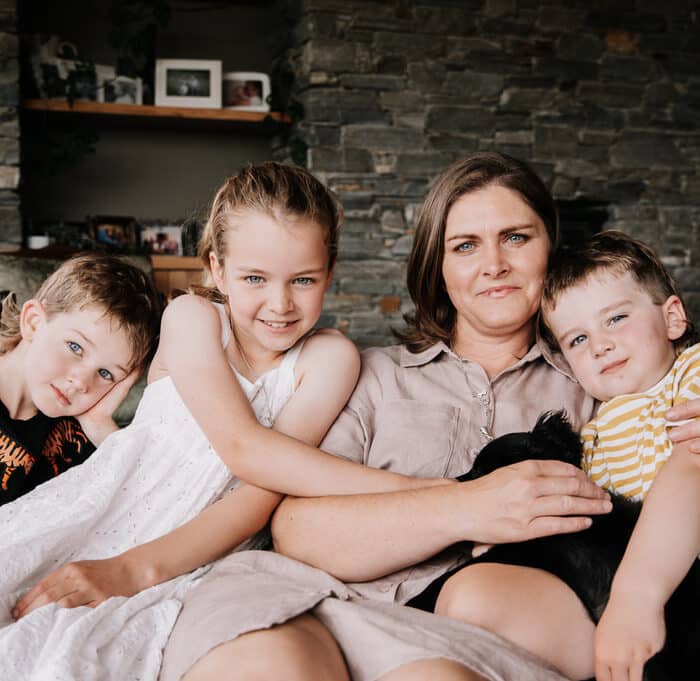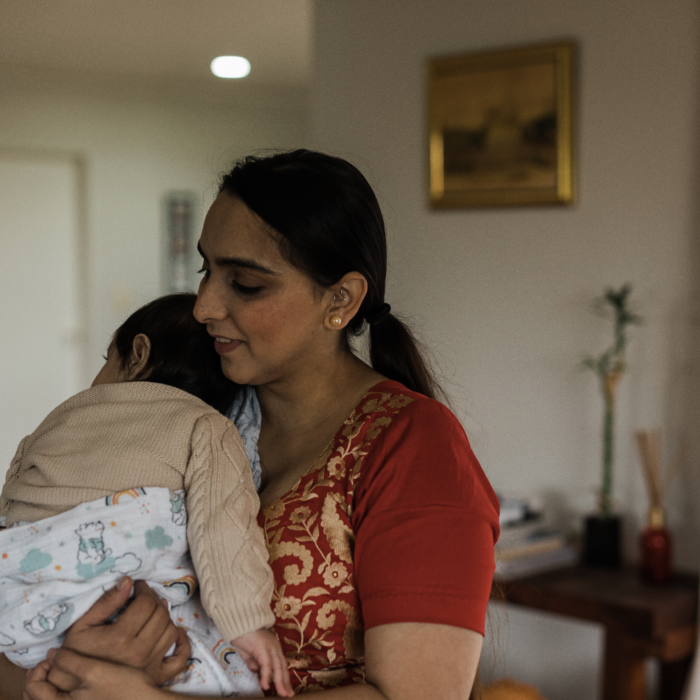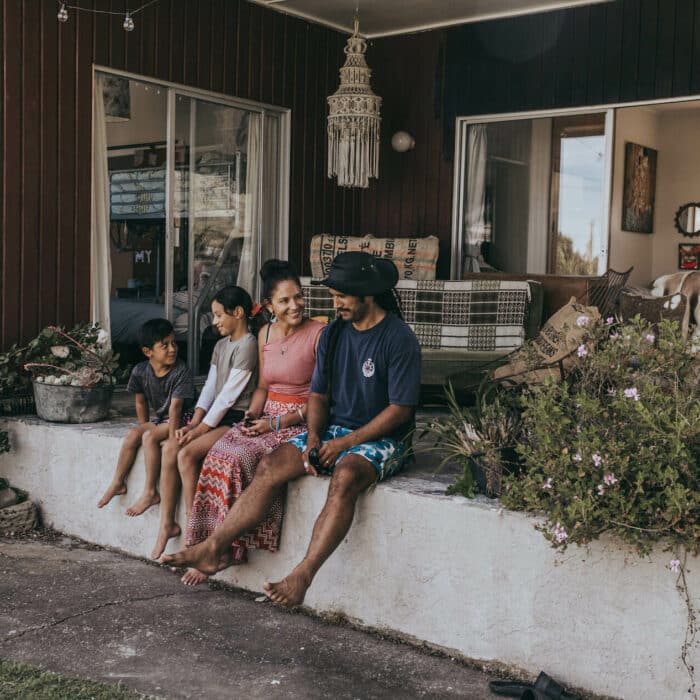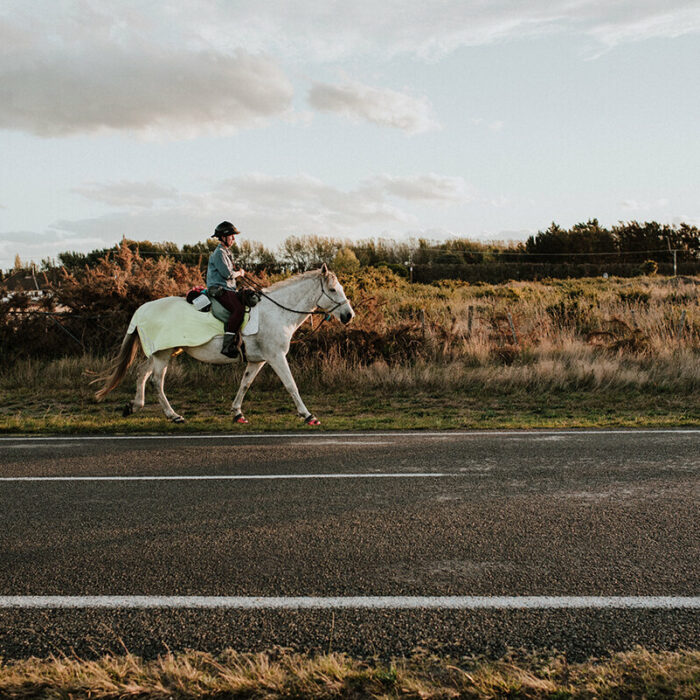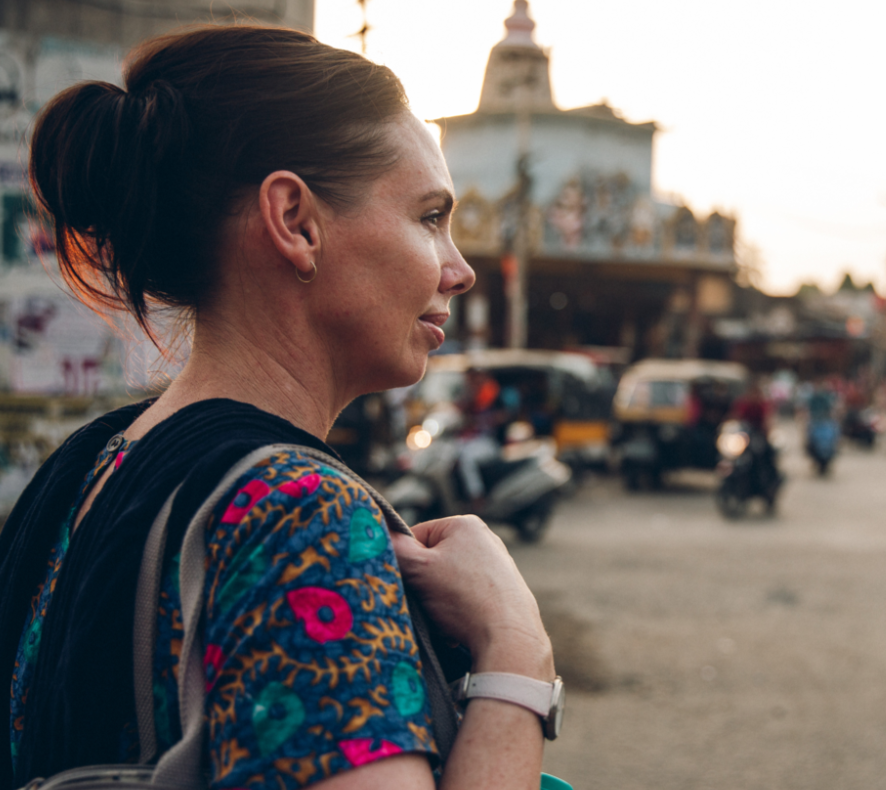
When Ana first visited India in 2006, she knew she'd found her "heart home." The country got under her skin. She travelled through many small villages with her husband, Daniel, and the reality of life there - especially for the women - stuck with her. "Flushing toilets, running water and electricity are often not available in rural parts of India," Ana explains. "Young women often get tricked into sex trafficking and other horrible things. Sometimes they are trapped into it and sometimes they are sold into it, either way it's usually because there are economic problems at home. They don't have the ease of life that we have in New Zealand."
Travelling and experiencing other cultures was a big part of Ana's upbringing. While she spent some of her childhood in Napier, she also grew up in far-flung places like Papua New Guinea and the Solomon Islands. Her missionary parents had a can-do attitude and modelled to her that helping others could be a way of life. "As a child, I watched my parents using their skills of carpentry, building, welding, teaching - everything - to help people," she says. "So, it was natural for me to want to do that too."
After their month-long trip in India, the couple returned to their home in Gordonton, Waikato - but Ana found she just couldn't settle back into normal life. She began to wonder how she might be able to do the one thing she had always felt a calling to do: be of service to others. In her early twenties, Ana had followed her passion for sewing and tailoring and completed a degree at the Design & Arts College of New Zealand in Christchurch, but afterwards she couldn't help asking herself, "Why did I do something so vain? So impractical? How am I going to help the world with this?" It dawned on Ana that the women she had met in the small villages in India might be able to benefit from learning skills in dressmaking. Maybe, Ana thought, she could share the skills that had always felt frivolous in a way that could make a difference. "We had a good life in Waikato," she says. "Daniel was working for Fonterra and we were comfortable financially, but I just felt like there was more that I could do."
After several deep discussions, the couple made up their minds. They sold their home, gave away their belongings, and set off to India with their children - Jehoash, who was eight at the time, Malachai, who was four, and Eva, who was sixteen-months-old. In the summer of 2010, the family began their new life in Odisha, a town in the eastern region of India, before finally settling in a rented home overlooking the rice fields in a small rural village named Bhalupali. "The locals were very gracious," Ana says. "Being the only foreigners in the village definitely stirred up a bit of interest, but I think there is a motherhood understanding around the world and with breastfeeding Eva and her still on my hip, I think that really helped to break down some of the cultural barriers."
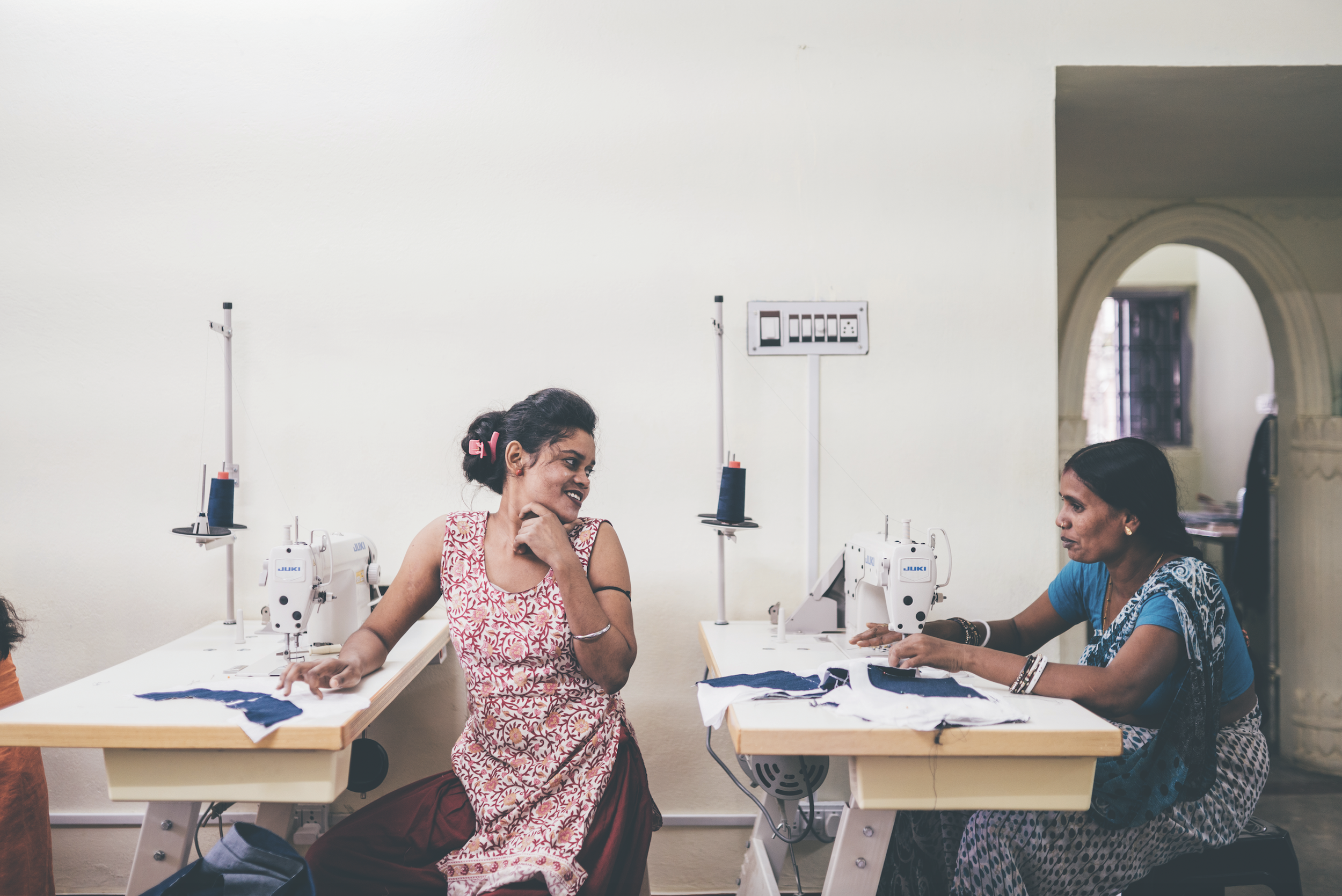
Ana quickly got to work, buying a small building and purchasing three treadle sewing machines. But the first day she first opened the doors on her sewing classes, no one came. There wasn't anyone the second day, either. Ana cried on those nights and doubt moved into her empty workshop. But each morning, she walked across the village and sat in the quiet room, waiting patiently. Finally, a woman named Minu arrived at Ana's door. She was speaking excitedly in Hindi - and once the woman's words were translated, Ana realised she was standing in front of her first student. Holi Boli Sewing House was born. Soon, the entire workshop was filled with the sound of the treadle sewing machines at work.
"The women love learning a new skill," Ana explains, "and they enjoy having a reason to get out of the house. They are usually living with extended family and are really busy looking after everyone else. In the mornings, they will cook breakfast and lunch, get all of the kids off to school, wash everyone's dishes and clothes by hand, and sweep the house with a broom - all before they can come to class at 11am. And then they have to head home again at 1pm when school finishes."
Sasmita Mahananda is one of women in Bhalupali who has joined the Holi Boli team and found friendship, as well as an opportunity to support her husband and children. Her son in particular loves visiting his "aunties" at the sewing shop. Banumati Bhue, who lives just down the road from the workshop, has found she feels a great deal of pride when she sees customers wearing the end product she has helped to create.
One of the most rewarding aspects for Ana has been seeing the way the village women have become comfortable in the sewing space. Ana has watched one of her early students, Lakshmi Khadia, confidence grow over the past eight years. "I remember the day that Lakshmi smiled for the first time," says Ana. "I looked up and she had this big grin on her face. She felt relaxed and safe and was able to let down her staunch composure for a moment. I smiled back and she looked a bit sheepish, but she has smiled from that day on."
Once Lakshmi finished the Holi Boli Sewing House course in 2014, she asked Ana for a job. This gave Ana a new idea: to try selling the garments the women made. "We started doing small runs and Lakshmi trained on the job," Ana explains. "I would bump into the nearest town on an auto-rickshaw once a week to get the fabric we needed."
At first, they sold the garments through a blog, then during a visit home to New Zealand Ana opened a small pop-up shop in Napier and things began to build momentum. Businesses started getting in touch wanting to stock the Holi Boli dresses and Ana was able to employ more women once she got back to India. Next, the founder of the ethical fashion label Tonic & Cloth, Jodie Woods - a Manawatū fashion designer - wanted Holi Boli to make their clothes.
"It was really amazing," says Ana. "We had to almost double in size and we now employ twenty-one women. Our mantra is: 'We are strong women who lift others up.' It makes a real difference in their lives. The women really feel like their work is important, not just because of the garments, but also the quality relationships and conversations they gain as well."
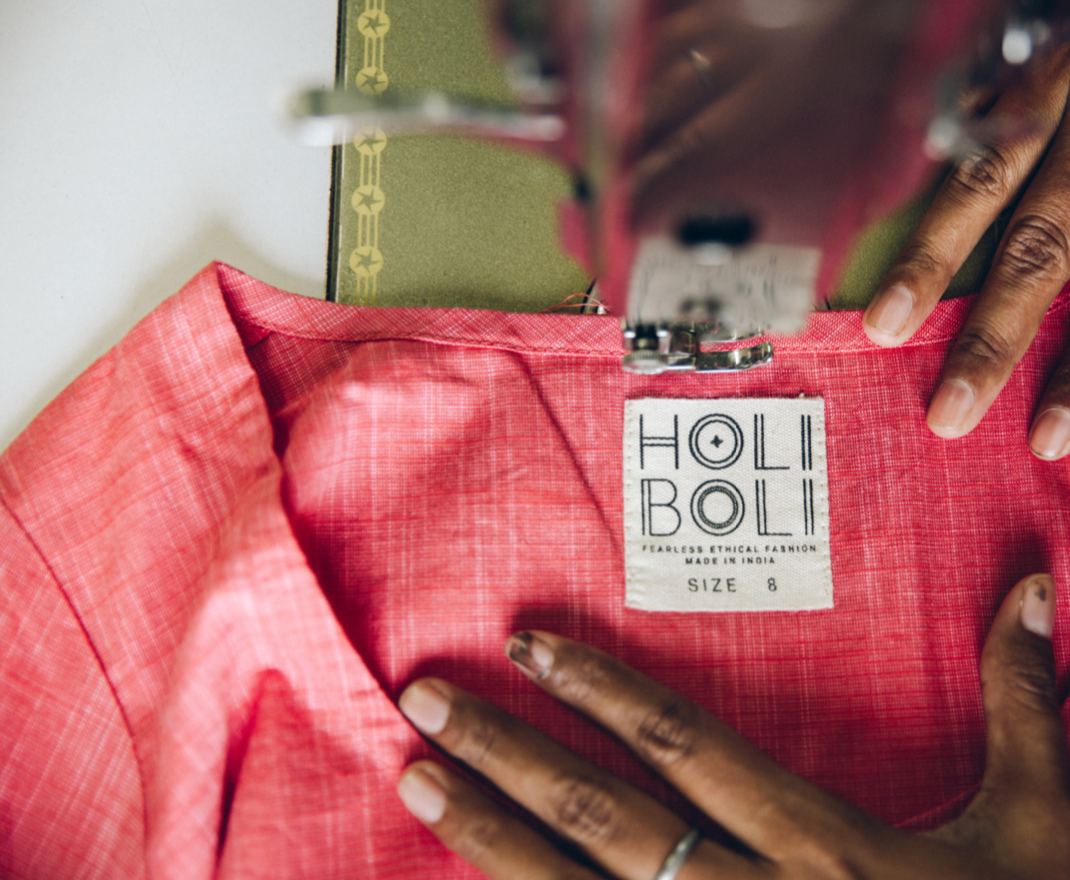
In 2020, the global pandemic hit and after two months of being locked down in their home in the village, Ana and her family made the difficult decision to return to New Zealand. "It was a hard thing to do," she says. At first Ana was hopeful she and her family would eventually return to India but now, after a year, they have made the hard decision to settle down in Hamilton. "We have had to really face the realities that things will never go back to what they were and we have gone through a grieving process," Ana says. "But India is still our home-home. New Zealand is where we need to be right now."
Getting garments out from their workshop in India to fill a backlog of Holi Boli orders in New Zealand has been a priority, but postal services worldwide have been excruciatingly slow. As an alternative, Ana created the first-ever run of New Zealand-made Holi Boli dresses, all with her own hands, on two sponsored industrial sewing machines and fabric rescued from ending up in landfill. "The whole reason for creating the New Zealand-made pieces was to get wages back to our women in India, so that our customers can still support their cause when they buy one of our dresses. So many beautiful people have seen the meaning in what we do and have supported us. It's been really uplifting for all of the women to see that so many people care about them and what they do."
And at the same time, the women in Bhalupali have kept the treadles going at the sewing house. Bonita Hara, who has worked at Holi Boli longer than anyone else, has stepped up to manage the team and Ana stays connected with video calls throughout the day. "We were all thrown in the deep end. They had to swim and they have," Ana says. "It's been exciting to see how they have taken up the challenge and I'm so proud of them. Bonita has respect in the community and a wonderful, calm personality with a kind sense of authority. She is keeping the family-feeling going."
The Holi Boli women's faces fill her Zoom screen with their wide smiles and Ana will visit as soon as she can. "That season of my life hasn't ended, it just looks a little different now and India still has a big part of my heart."
Related Stories
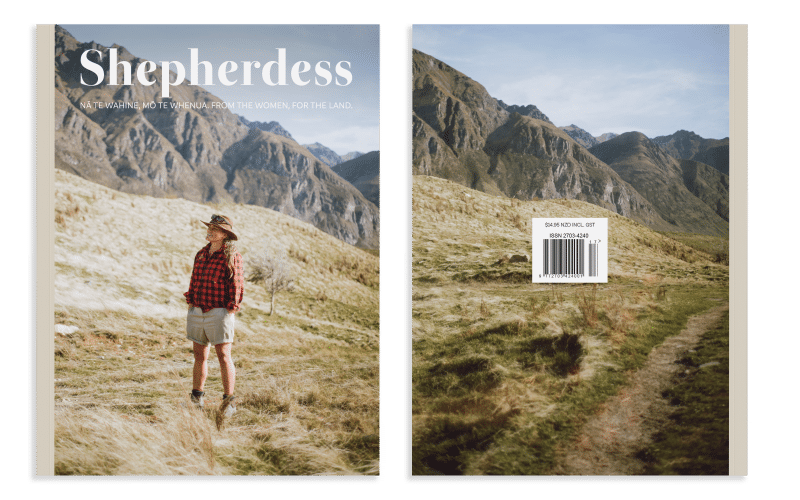
Out Now
Seventeenth Edition
Our beautiful Ngahuru Autumn 2024 Edition is out now!
